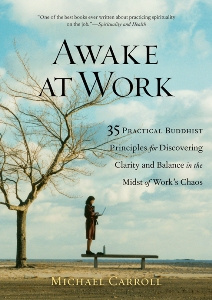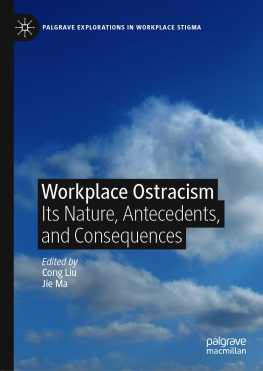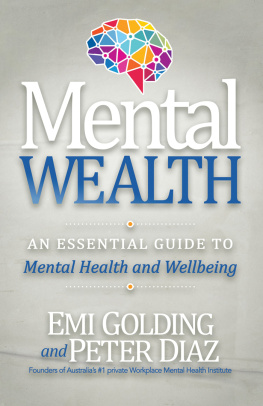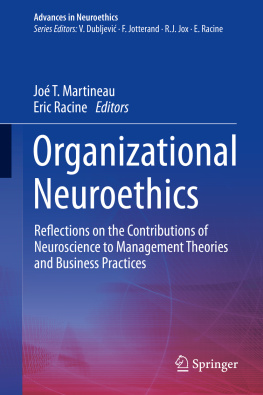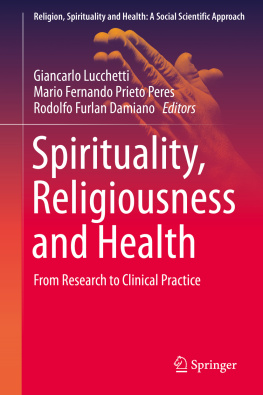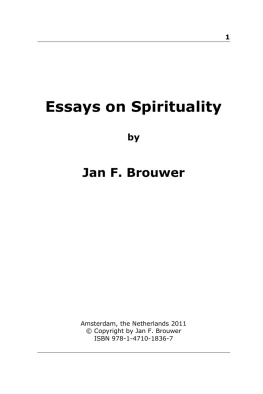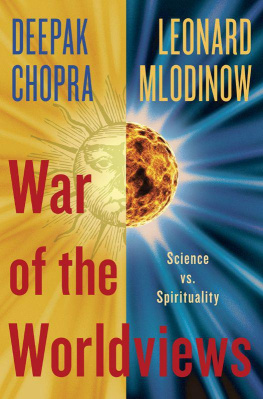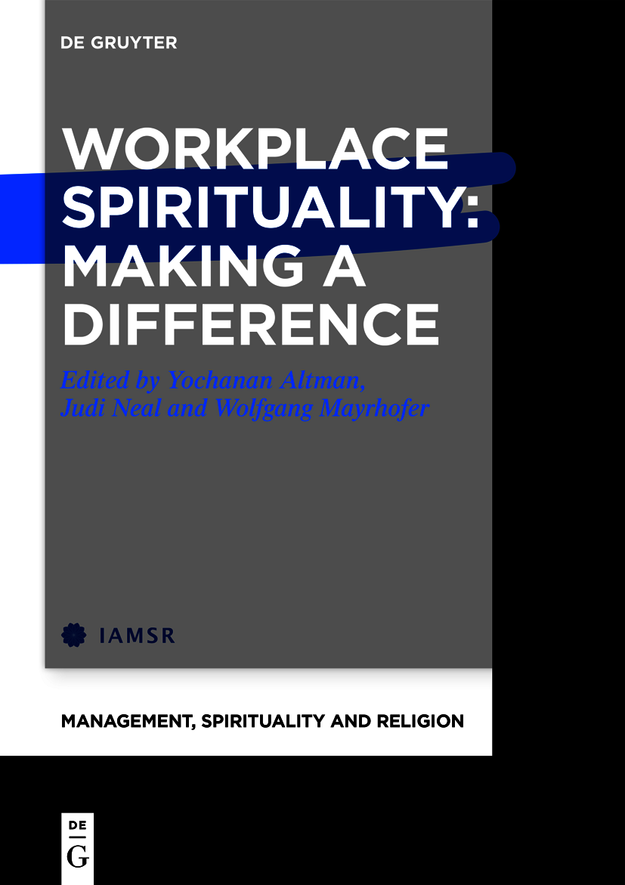Introduction
In this introductory chapter we offer a brief history of IAMSR, a brief history of the field of workplace spirituality, and a broad overview of the trends in the field. We, the three editors of this book, will each conclude this chapter with offering our own views of workplace spirituality and what we see emerging in the future.
A Brief History of IAMSR
The International Association of Management, Spirituality and Religion (IAMSR) was established in 2010 by Yochanan Altman in response to an emerging need from informed practitioners who did not feel at home with the Journal of Management, Spirituality and Religion (JMSR) community, as an exclusive academic forum. Since then, IAMSR has primarily acted as a bridge between academia and practice through its biennial conferences, which cater to both communities, running two parallel tracks one academic, one practitioner, on a common theme, with frequent exchange and mutual fertilization. In 2020 IAMSR established a book series titled Management, Spirituality and Religion in partnership with De Gruyter, of which this book is its first title.
To date, IAMSR has held five international conferences. Following the inaugural conference in Vienna in 2010 on the theme Spirituality and Management: Strangers no More?, we held conferences in Bangalore, India on The Indian Challenge to Western Management in 2012, in Lourdes, France on Miracles & Management in 2013, on Creativity and Spirituality in Barcelona, Spain in 2015 and on Leadership, Spirituality & Education in Fayetteville, Arkansas, US in 2017.
The conferences have been guided by the motto to be informed and inspired by the context. The context refers to the situ of the conference. Hence, we wish to refer to the location as well as season in which the event takes place. In Vienna it was around its famed Christmas markets (and Hanukkah occasioned at the same time too); in Bangalore, renown for its spiritual heritage, we were visited by no less than three gods (gurus); in Lourdes, a Marian site, we held the conference during the religious holiday of Pentecost; in Barcelona the conference was planned around its national Sant Jordi day and in Fayetteville we benefited from engagement with the Christian culture of the Deep South. Over the years the conferences evolved in length and structure. The last two conferences were three days events that ran two parallel streams: an academic track and practitioner-oriented workshops with joint keynotes.
IAMSR participants come from academia (mostly, but not only, from business schools), training and consultancy firms, practicing managers as well as faith ministries. The conferences are strictly professional events, open to all faiths and none and to participants from all countries. The conferences have been held under the auspices of the Management, Spirituality and Religion Special Interest Group of the Academy of Management (AoM).
We had planned to hold the sixth conference in Vienna in September 2020, seeing this as an opportunity to celebrate the tenth-year anniversary of IAMSR conferences. Our vision was to invite eminent scholars to present their perspectives on the trends in the field of workplace spirituality over the past ten years and to strategically think about the future of the field for the next ten years. We had intended to have participants submit chapters to a book following the conference. The Covid-19 pandemic changed our plans, and as of this writing, we hope to now hold that conference in September 2022.
Challenges also present opportunities, so we decided that since the date of the conference was delayed, we would instead invite selected scholars with unique perspectives on the field to submit chapters before the conference. Thus, this book. Over thirty authors from around the world share their expertise and scholarship on the past and current trends in workplace spirituality and they offer many suggestions for future research and the future of the field itself.
The twenty chapters in this book are divided into five parts. Part I, Introduction, includes this introductory chapter and an overview chapter of the field of workplace spirituality. Part II includes seven important themes that are essential lenses on the field: (1) leadership, (2) ethics, (3) strategic management, (4) organizational change, (5) organizational behavior, (6) human resource management, and (7) gender and diversity. Part III focuses in on three sectors where workplace spirituality has been implemented, describing both research and practice in these settings. Part IV is titled Key Issues and the three chapters in this section delve more deeply into ways of thinking about and enacting workplace spirituality that are not yet in the mainstream but that expand this field in valuable directions. Part V consists of four chapters on essential epistemologies and methodologies of interest to theory development and empirical research: (1) indigenous studies, (2) relational ontologies, (3) ethnography, and (4) psychodynamics.
This book is not a textbook for an introductory course on workplace spirituality. Nor does it purport to completely cover all aspects of the field. Instead, this is meant to be an update and a snapshot on what is presently unfolding is the workplace spirituality domain since the inaugurating IAMSR conference. It is also designed to provoke collaborative dialogue among scholars who will attend the next IAMSR conference. It is our hope that those who read this book will find their thinking, their research, and their community expanded and enriched.
Brief History of Workplace Spirituality
In 1970, Robert Greenleaf, who is often acknowledged as the instigator of the Servant Leadership movement, published an essay titled The Servant as Leader. This pamphlet was published a few years after Greenleaf retired as the Director of Management Research after 38 years at AT&T. A few years later he founded the Greenleaf Center for Servant Leadership. His concept of servant leadership was inspired by Herman Hesses book Journey to the East () that reminded Greenleaf of the role of prophecy in Christianity. The adoption of servant leadership grew over time and is still in practice in many organizations today. However, even though the servant leadership movement was founded as a result of a spiritual book, and even though Greenleaf was a deeply religious man, the servant leadership movement cannot be portrayed as the beginning of the workplace spirituality movement, since it was not explicit about spirituality or faith in any way.
The same is true of the seminal contribution of Abraham Maslow. Known as the founding father of humanistic psychology he could conceivably be considered a founding father of workplace spirituality, with books such as



